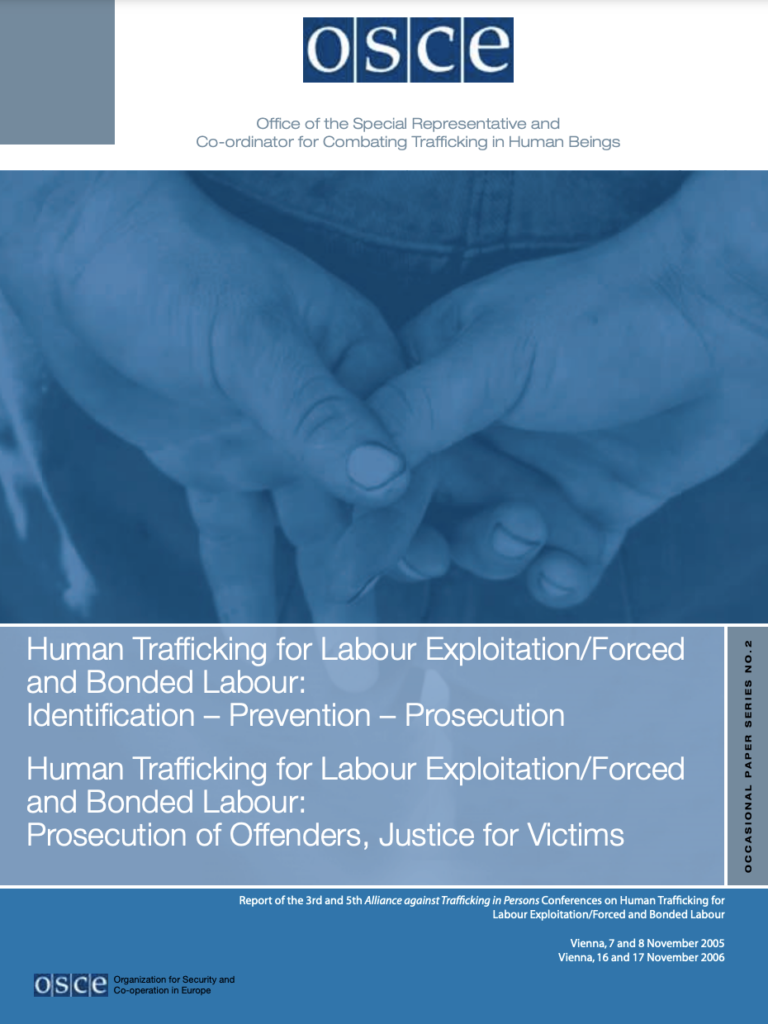A Summary of Challenges on Addressing Human Trafficking for Labour Exploitation in the Agricultural Sector in the OSCE Region
This Occasional Paper presents an analysis of labour trafficking in agriculture, which, according to the International Labour Organization (ILO), employs over one billion people around the world. Agriculture is the second largest employment sector, especially for women and youth. This...

